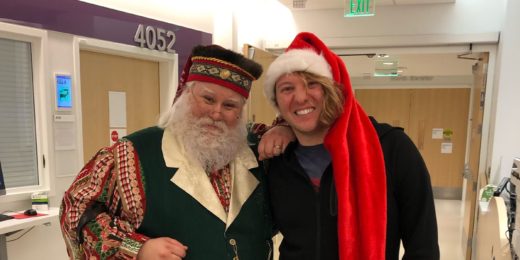Around Thanksgiving, the ceiling light that illuminates most of my apartment burned out.
I still haven't replaced it. Instead, I use the flashlight app on my phone to get dressed every morning; and I'm constantly tripping over my shoes, backpack and other miscellaneous, floor-dwelling items whenever I'm home. All in all, it's not a particularly dignified scenario.
Changing light bulbs isn't hard. The problem is that this particular light bulb is encased in a ceiling fixture that is incredibly difficult to open. Over the past three months, my building's maintenance staff and I have tried -- unsuccessfully -- to change the bulb in at least four different ways. Eventually, I just kind of gave up.
That process -- scheduling appointments with maintenance during regular hours, following up via phone or email, and reshuffling my research, coursework and other MD/PhD training responsibilities -- made something as simple as changing a light bulb feel like a "project." I worried that this project was whittling too much time away from my perpetually-impacted backlog of to-dos, something that every physician-scientist-in-training carries with them in some form or another. So, I remain in the dark.
This light bulb debacle made me think of a perspective piece (co-authored by Stanford Medicine's own PJ Utz, MD, and Brian Kobilka, MD) that was published in the New England Journal of Medicine a few months ago. In it, the authors note that the proportion of physician-scientists in the medical workforce today is less than a third of what it was in the 1980s. Furthermore, they make the case that this is mainly a result of physician-scientist trainees discontinuing their pursuit of increasingly competitive, seemingly "unattainable" careers that combine research and clinical care.
As someone currently in the middle of my own physician-scientist training, I can admit that sometimes the idea of juggling research, clinical responsibilities and just being a person seems close to impossible in the long-term.
In my life as an MD/PhD student, I'm responsible for a miniature version of the balancing act that most academic physician-scientists navigate every day. I don't run my own lab, but I do manage several scientific projects for my PhD research -- including applying for grants, making sense of data and writing papers for publication.
Likewise, I'm not a practicing physician yet, but I stay involved with patients through volunteer work and some nonprofit health care advocacy. Here and there, I also do a bit of teaching, taking classes and other miscellaneous projects for the hospital and school of medicine.
Combined, all of this amounts to about 80 hours per week that I spend on career-related stuff. By my estimates, this is about average for MD/PhD students, and a bit less than average for fully-trained physician-scientists, whose patient-related commitments are much larger than mine.
I think the reason that I -- and so many others on the physician-scientist path -- work so much is simple: clinical and biomedical research problems are some of the most interesting and important in all of science, so working to solve them generates an incredible sense of purpose.
But I've also recently realized that, because that sense of purpose is so important to me, I've kind of let it swallow up other, equally-important areas of my life. Sure, I do some of the coolest work in the world, but I also don't date, exercise or travel as much as I'd like to. I often flake out on social time with friends to make another "really important deadline" or because, on a trainee's income, my leisure budget is pretty limited. And, of course, the constant crunch on my time means that basic life-management tasks -- like replacing light bulbs -- can live on my to-do list for weeks or even months at a time.
Now more than ever, I've started to feel the tension between the intense commitment required to follow my physician-scientist dreams and my fear that doing so will seriously encroach on my physical, emotional and interpersonal well-being. For the first time, I'm doubting my preparedness for the path ahead.
In my last conversation with my apartment's maintenance staff, they explained that the light in my room is probably jammed shut, which means that the only option left for changing the bulb is to break it open.
There's something appealing about the brute-force approach to any problem, but I'm not sure that an equally simple solution exists for the flickering confidence I've started to feel about the future.
For now, the light in my apartment still isn't on. But hopefully, it will be soon.
Stanford Medicine Unplugged is a forum for students to chronicle their experiences in medical school. The student-penned entries appear on Scope once a week during the academic year; the entire blog series can be found in the Stanford Medicine Unplugged category.
Tim Keyes is an MD/PhD student in Stanford's Medical Scientist Training Program. He likes microglia, snowmobiles, pop music written for teenage girls, and going on terrible first dates. Follow him on Twitter at @timothykeyes
Photo by Rodion Kutsaev






